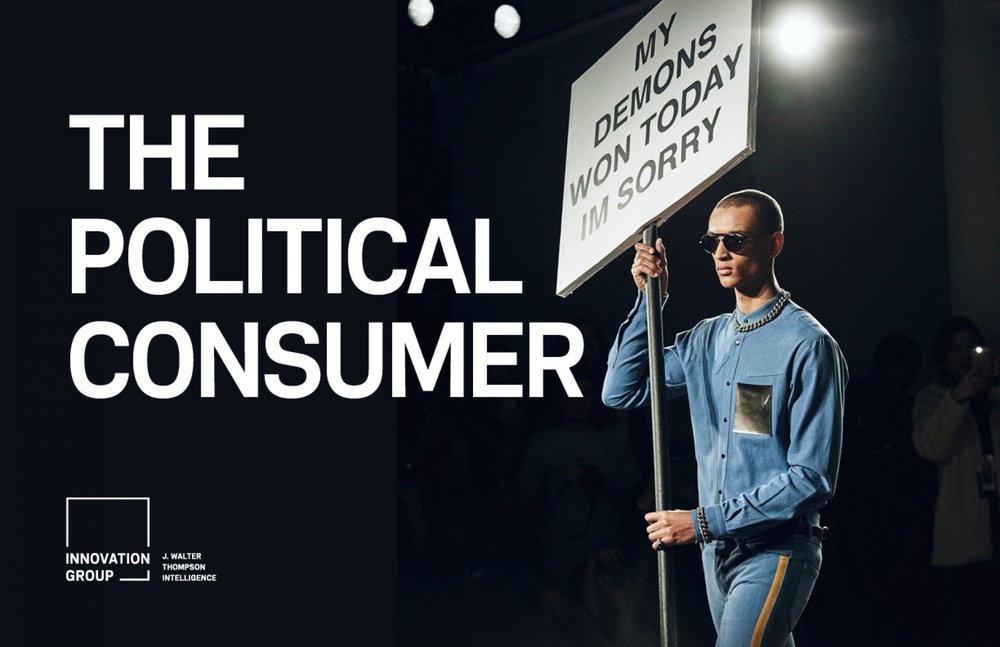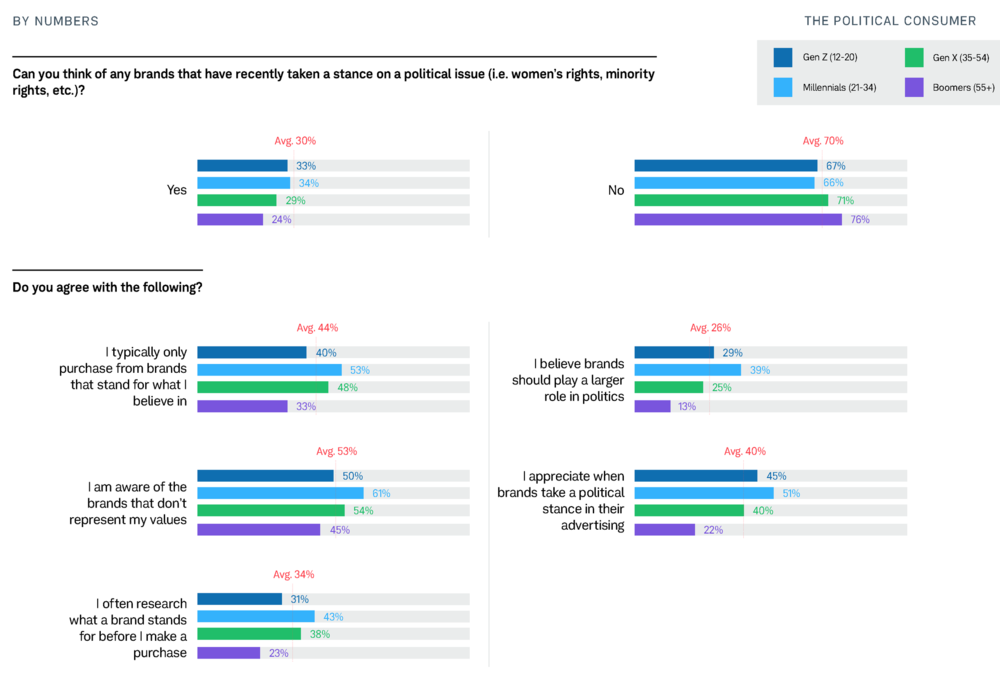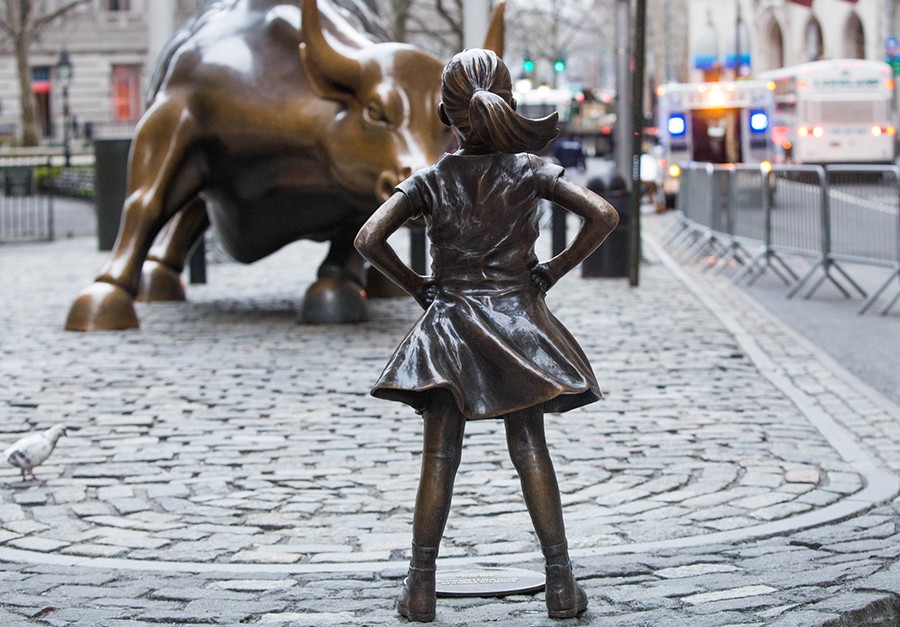The gig economy is alive and well. In fact, this modern online phenomenon has only…
Getting Political: How To Advertise While Taking a Stand
Remember Pepsi’s self-proclaimed protest ad? The one where white model Kendall Jenner offers a can of Pepsi to a police officer during a street demonstration? The one that was pulled less than 24 hours after its debut internet release? Or Nivea’s ad for Invisible for Black & White deodorant? The one that included the tag line “White is purity”? A line quickly co-opted by white supremacists before Nivea dropped it.
 Nivea’s “White Is Purity” meets Pepsi’s Protest Commercial
Nivea’s “White Is Purity” meets Pepsi’s Protest Commercial
Then there was Bloomingdale’s holiday catalogue ad: “Spike your best friend’s eggnog when they’re not looking.” Which was a nod to what, exactly? Date rape? And who could forget Pepsi’s 2013 Mountain Dew ad? Yes, the ad with a white female assault victim facing a police line-up of five African-American men and a goat. The one dubbed “the most racist commercial in history.”
We’ve all cringed at the dinner party when someone tells an offensive joke or makes an inflammatory political remark. Often we’ve spoken up, just left the table or both. But imagine what happens when those words, aimed at selling a product or service, are transmitted to millions of people on television, radio, in print or online. It’s a PR disaster. Fail with a capital “F.”
taking a stand

The tightrope of political consumerism is a fine one, and some issues are un-spinnable. But in a hyper-politicized, tech-connected world, where every day brings a new hot button topic to the fore, how can socially responsible marketing and public relations agencies help clients take a stand without being divisive and alienating their audience? It’s tricky, but it can be done when thoughtful and creative heads prevail.
Public awareness of corporate stances on political events hit an all-time high in 2016, nearly doubling since 2014, according to a report by The Innovation Group at J. Walter Thompson Intelligence, a global research, innovation and data analytics firm. The report indicates that Americans are overwhelmingly supportive of brands that take stances on issues: 78% of Americans agree that companies should take action to address important issues facing society, while 88% agree that corporations have the power to influence social change.

“It can be difficult to navigate the conversation effectively. In a climate saturated by social media, brands that are perceived as insensitive or inauthentic run the risk of getting called out by consumers,” says the report. At the same time, “those that sit on the sidelines risk missing out on important conversations, or even alienating consumers who seek a better alignment with their values.”
Latifah Azlan, a web editor who has written on the issue of political consumerism, the idea that the market is a channel for political participation, agrees. “In the past, brands would deliberately stay away from getting involved in politics at the risk of losing profits. Today, the reverse can be just as true,” Azlan writes. “Consumers, especially those in the millennial age bracket, are now looking to support companies that reflect their values…Brand executives are taking note of this shift in consumer ethics and are promptly responding by incorporating activism into their companies’ ethos as well as their advertising campaigns.”
when it works, it works
Perhaps the most famous example is Coca-Cola’s ground-breaking 1971 “Hilltop” spot, featuring bohemian-looking, racially diverse young people singing “I’d like to buy the world a Coke.” Roger Greenaway, one of the jingle’s creators, said that image, coupled with a song about togetherness during the Vietnam War, sent a message.
“I think it was the flower-power era, and most of America was tiring of the Vietnam war. The lyric, although not overtly anti-war, delivered a message of peace and camaraderie,” he explained in 2015 shortly after Mad Men co-opted the song for its finale.
More recently, clients with ads incorporating political messages have ranged from beer to coffee and fashion to investment banking. Heineken was lauded for its ad “Worlds Apart: An Experiment,” during which people with opposing political viewpoints on issues such as transgender rights, climate change and feminism made genuine connections as they built a bar. The spot received more than 3.5 million views on YouTube, and AdWeek said Heineken hit the mark by not “positioning resistance as the new Coachella” and instead demonstrating “that you can even like someone who embodies what you hate or fear.”

Among other successes, a brand campaign based on Fearless Girl, the statue that is both corporate ad and political statement and famously confronts Wall Street’s Charging Bull sculpture, won the Grand Prix at the Cannes Lions Festival in three categories. Dior’s “WE SHOULD ALL BE FEMINISTS” T-shirts were the hit of Maria Grazia Chiuri’s runway debut. JetBlue’s “Reach Across the Aisle” experiential marketing campaign showed passengers on one of its planes being handed red or blue voting paddles and offered a free round-trip ticket to any of the airline’s destinations. The condition: They must unanimously decide on one place. They do. And Starbucks’ original Upstanders video and podcast series features “inspiring individuals whose actions are emblematic of the American spirit and what is missing from so much of today’s national dialogue.”
Felix Palau, vice president of the Mexican beer brand Tecate, spoke along similar lines when discussing his company’s ad “The time has come for a wall.” The spot aired during one of last year’s presidential debates and showed a wall short enough for men to reach over to share a beer. That night, the company’s engagement was 134% higher than usual.
“Tecate is acknowledging an ongoing conversation, while raising a glass to beer’s uncanny ability to bring people together in a positive way,” said Palau in a press release at the time.
be sensitive, be authentic
Marketing experts say it’s important for companies to back up their words with action. Don’t just take a political position in an ad, do something about it. Companies also must ensure their in-house business culture and policies align with their creative strategy and engagement marketing efforts, especially on political issues, whether it’s gender pay equality or climate change. Don’t try to be something you are not, they warn: Transparent political consumerism usually backfires. It’s also a good idea to involve both sides and a neutral participant in marketing to help ensure balance and sensitivity. And it’s always a wise idea to prepare for damage control in case things go wrong.
Just ask Pepsi.
We believe in your purpose. Let us produce it. Our approach to advertising and brand experiences is one of a kind.



